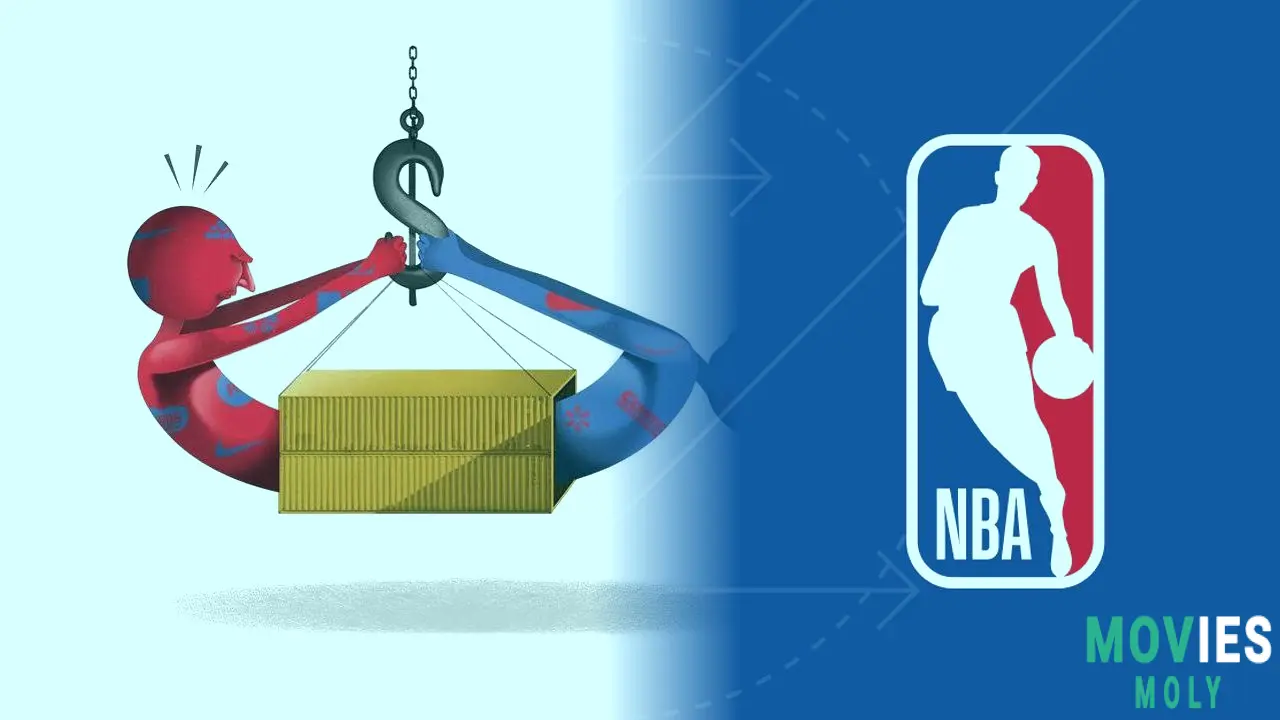It is wild to think about how some of the biggest companies got their start. Take Box, for instance. This cloud storage and file-sharing business is now worth billions. But it might never have taken off if its co-founder, Aaron Levie, had not sent a simple cold email to Mark Cuban 20 years ago. It goes to show that sometimes, just reaching out can make all the difference.
Back in 2005, Aaron Levie was still a student at the University of Southern California. He was already working on a cloud-based data storage startup from his dorm room. This is the kind of story that always gets me interested. The company needed money to get going. So, one of the co-founders, Dylan Smith, put in about $20,000 he made playing online poker. What a way to start a business! Before their junior year of college, Levie and his three co-founders—Smith, Sam Ghods, and Jeff Queisser—got an $80,000 seed round from early investors. This helped them make Box an official business and launch their first product.
Still, the founders knew they needed a lot more cash. They had to build out the platform and get enough customers to make it a real business. So Levie started sending cold emails to everyone he could think of who might invest. This list included Mark Cuban. Levie recalls, "If you were remotely an investor in 2005, you got an email from me." He guessed he reached out to dozens of investors from "anywhere in the world." He started in his hometown of Seattle then moved on to Silicon Valley and even Cuban in Texas. He truly aimed for anyone with a theoretical chance of investing in the company. He was probably emailing them.
Mark Cuban's Quick Response and the "Breakthrough Investment" That Changed EverythingHow a Billionaire's Open Email Inbox Led to a Crucial Turning Point for Box
Cuban responded just a few hours after the students reached out. The billionaire business owner, who also owned the Dallas Mavericks back then, first suggested working together on a data-hosting project for one of his businesses. Levie said that plan "basically expanded from there." It must have been an amazing moment for those young founders. "That was wild, because it happened so fast," Levie remembered. He called Cuban's funding Box's "breakthrough investment." It gave him the confidence to drop out of college and focus entirely on building the company. I can only imagine the excitement they felt.
Cuban keeps his email address public. He checks it regularly. As of 2020, he was getting up to 1,000 email pitches every day. That is a lot of emails to sift through! However, Cuban is a tough sell. He has said he deletes about 90% of those messages. It takes him only a couple of seconds to decide if he is interested. This means Levie's email really stood out among a sea of hopeful pitches. Levie says Cuban got "the same pitch as everyone else." It focused on Levie's ideas. Online data storage was getting cheaper. The internet was getting faster. More people were using different devices for work and personal use. This opened up a chance for a company to make it easier to store data securely online and let people "work from anywhere."
So, why did this idea stick with Cuban in particular? Cuban did not respond right away when asked about it. Levie believes the tech billionaire "was just very primed for that pitch." He thinks Cuban's experience building the streaming media market in the 1990s probably made him understand the need for more online data storage. It makes a lot of sense. The founders were not even sure Cuban would respond so quickly, or at all. Levie admits that nearly all his cold email pitches "were shots in the dark." But that was the idea. He said, "I don't know what part of my brain didn't develop properly, but I don't see it as any risk of pinging people and pitching people [out of the blue]. You just have to have as many at-bats as possible."
Aaron Levie's Advice for Young Entrepreneurs and the Early Days of Box

From Attics to Garages: How Early Investments Fueled Box's Initial Growth
Levie gives similar advice to new business owners today. "Email everybody," he says. He reasons that you have little to lose by doing so. "Most of the time they're not gonna respond. But the good news about math is you’ll catch the one that does. It might be an investor or a prospect or somebody you want to hire. So to this day, I love emailing people I want to work with." This simple approach is something anyone can try. It shows that even with big dreams, sometimes the simplest actions can lead to big results.
After getting Cuban's money, the co-founders put it to good use. They worked out of Smith's parents' attic in Mercer Island, Washington. Then they moved to Levie's uncle's garage in Berkeley, California. They hired contract engineers to help build their product. They put money toward server costs, online marketing, and a 1-800 phone number for customer service. Levie said, "We didn't pay ourselves anything. This was just purely, like, 'Let's grow the business as much as possible.'" This early dedication, not paying themselves, shows how committed they were to their vision.
The End of a Partnership: Why Mark Cuban Stepped Away from Box

A Disagreement Over Business Strategy Led to a Major Split in the Company's Early Days
Just one year after Cuban made his investment, things changed. He and the Box co-founders disagreed about a big decision. Box wanted to try a "freemium" business model. This meant giving away a free gigabyte of online storage to attract more customers. Cuban did not like that idea. He also did not like that Box would need more funding to pay for getting new customers. Levie mentioned this in a 2012 interview. Cuban is known for being careful with money, so it makes sense he would be concerned about losses.
Box raised more money in 2006. They got a $1.5 million funding round led by a VC firm. Levie used some of that money to buy out Cuban's part of the company. It was a big move, but it allowed Box to go in the direction its founders believed in. In 2014, when Box went public in an IPO that valued the company at about $1.7 billion, Cuban thought back on his decision to leave. He wrote on Twitter that he "would combust" if he was responsible for a business losing more money than it made. At the time of the IPO, Box had still not made a profit. However, Box has made a profit every year since 2023. The company reported a net income of $129 million in 2024. This shows that Levie's bet on the freemium model eventually paid off.
While their time working together was short, Cuban's investment certainly helped Box get its initial push. Twenty years later, Levie still clearly remembers the excitement he and his co-founders felt when he got Cuban's email. "It's very surreal when you see the name of somebody that you hold in high esteem in your inbox," Levie said. "That’s a very good feeling. It may have been the first time ever that I felt that rush of like: ‘Wait, I’m sorry. Mark Cuban literally responded? His name is literally in the sender line?’ We were just super pumped that it actually happened." It just goes to show that you never know what can happen if you just try.



